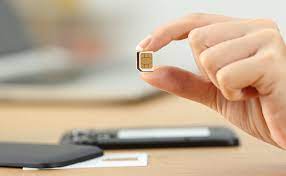Clients entrust you with their most private data, so cybersecurity has to be a primary concern for any legal firm.
Because clients delegate lawyers with too much sensitive information, law firms are perfect candidates for cybercrime. So, how do you reduce your company's risk of cyber attacks while also keeping your clients' data as safe as possible? A competent lawyer must stay current with and fully comprehend the recent legal technology. But, with rapid changes in technology at such a fast pace, where do you begin?
Lawyers are on their toes, especially with the uproar of rising SIM swap attacks. It's high time they take security measures to keep their and their client's data safe and secure—both for the sanctity of their practice and to secure their hard-earned money.
This article will talk about a SIM swap attack, how it works, its impact on law firms, and tips to prevent a SIM swap attack. Continue reading.
What is A SIM Swap Attack?
SIM swapping, also known as SIM spoofing or SIM jacking, is a type of identity fraud in which a fraudster takes your mobile number and assigns it to a new SIM card. Hackers can use the new SIM card on a different device to allow access to your other accounts and cause severe damage.
How Does A SIM Swap Work?
The SIM swapping fraud begins with someone imitating you contacting your cellphone provider. They will assert that they have a different SIM card for your profile that needs to be activated. They may claim that the previous mobile and SIM card were misplaced, broken, or stolen.
The phone carrier will almost certainly ask for some form of identification, like your security questions or account PIN or social security number's last four digits. Once the fraudster has convinced the cell phone carrier's customer service agent that they are legitimate, they can transfer your mobile number to their SIM. The cybercriminal has primarily deactivated your mobile number and designated it to their SIM, which they have inserted into their smartphone. They could then change account passwords and seize command of any 2FA (two-factor authentication) sent to your mobile via SMS. They will access various accounts such as online bank accounts, email, digital payment systems, social media, networks, online shopping, and other services. For lawyers, it is far worse. These attacks may lead to data loss, client's trust, lawyer's practice, law firm reputation, and more.
Cyber Attack Impact on Law Firms
These breaches can be costly to legal firms. Data leaks can result in financial consequences, such as an unintentionally paid ransom, regulatory penalties, or a company shut down due to the incident. A security breach can also affect the market shares, as evidenced by the recent invasion of UK law firm Gateley. The law industry is valuable, and economic benefit is the primary motivation for cybercriminals. It is not unusual that IBM recently revealed that the average price of a violation for business services would be around $4.65 million. On the other hand, attacks are not only a financial strain, but they can also hurt a firm's client relations and good name.
I suppose a law firm suffers a data leak. In that case, it conveys to its clientele, partner organizations, vendors, and interested parties that it is not a safer business and that the information it holds is not adequately protected. Many people may choose to discontinue agreements to work with a legal practice that they feel much more comfortable with.
Public image is undoubtedly more important than money for the legal industry, as prominent security can be linked with a company for the rest of its life, costing existing customers and innumerable new business opportunities. As a result, legal practices must begin taking the necessary actions to improve and incorporate information security policies to secure client and business information effectively.
How to Prevent A SIM Swap Attack?
SIM swap has some significant impacts on financial loss, reputation damage, and more. Therefore, it is essential to take precautions to secure yourself from all such attacks. Here are a few great ways to prevent a SIM swap attack:
Add a PIN verification process to your SIM. So, when you are transferring your phone number to a new SIM card, you should provide the PIN code. Otherwise, you cannot move the SIM.
Use the 2FA (two-factor authentication) method other than SMS-based 2FA. You can get yourself an authenticator app or a physical token such as Authy, Microsoft Authenticator, Google Authenticator or a YubiKey.
Get yourself a good password manager instead of saving all your passwords on the phone.
Subscribe to Efani's secure mobile services.
Update your passwords frequently, especially after you notice unusual activities on your phone.
Never link your phone number to any of your critical accounts, such as bank accounts, social profiles, or corporate accounts.
Do not overshare personal information online. Encrypt your data to protect it from being stolen if someone gets access to your phone.
Conclusion
SIM swap is only rising since 2017, and anyone with access to confidential data or some money in their bank account is a potential target. To protect yourself and your law firms from the attack is the right thing to do. The above tips would work in tandem to guarantee that your law firm, clients' data, reputation, and finance are adequately protected from arising SIM swap attacks. Eventually, all of the advantages and benefits associated with performance and pricing strategies suggested by today's digital modernization will continue to exist.







